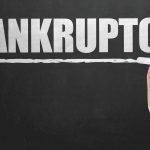In bankruptcy, you are allowed to protect various assets, such as cash or cash equivalent assets such as the right to receive a tax refund. This is called exempt property or exemptions.
When the exemption laws were overhauled in New York in January 2011, it proved to be a major benefit to homeowners and renters alike. Homeowners are now allowed to protect up to $150,000.00 in equity in their primary residence. Renters are now allowed to protect up to approximately $12,000.00 in any personal property, including tax refunds.
Despite the above benefits, there has always been, and still remains, a tradeoff for homeowners. If a homeowner must declare the “homestead” exemption, they can only protect $1,000.00 in cash or cash equivalent assets, such as a tax refund.
As we approach the end of the current tax year, homeowners must be wary of the timing of their Chapter 7 bankruptcy filing. Although the tax year has not yet ended, many Chapter 7 Trustees have taken the position that a pro-rata share of the current year’s tax refund may be considered property of a bankruptcy estate under Section 541 of the Bankruptcy Code. For example, if a homeowner filed on November 1st, the Chapter 7 Trustee may claim that approximately 83% of the tax refund for 2011 is property of the estate, and a homeowner may be required to be turn over that portion of the refund, when received, to the Trustee for distribution to creditors.
If you are a homeowner with equity in your primary residence and have traditionally received a substantial tax refund, you must ensure that this issue is discussed with your attorney. Your attorney’s job is to provide you with guidance to obtain the maximum protection under the law. It is hard enough to make the decision that a bankruptcy filing is necessary. You should not lose an asset that could be protected. Only an experienced bankruptcy attorney will raise this issue and help you work it through.
